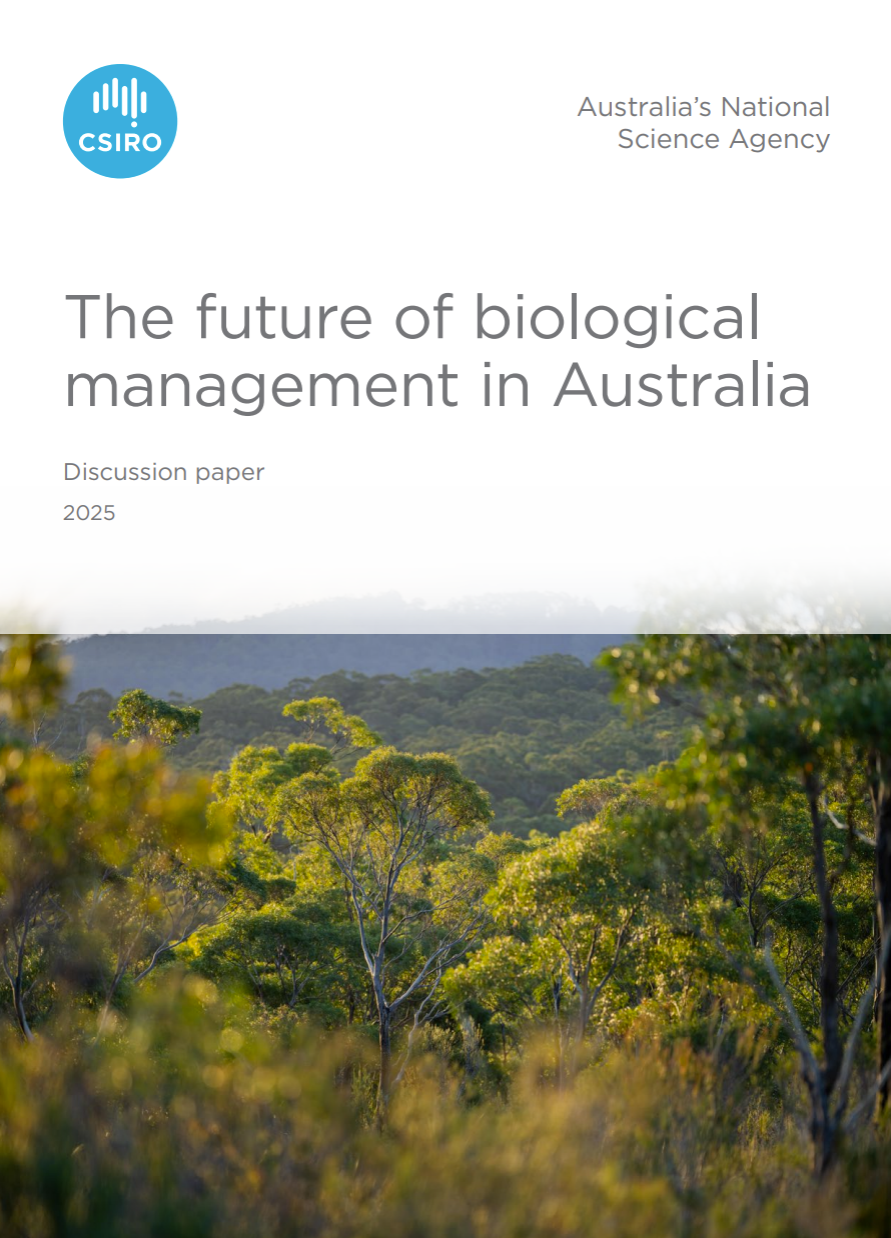A clear path for the future of biological management
The discussion paper provides an overview of next generation approaches to biological management, cross-cutting challenges, and outlines the national planning required to support the development and deployment of these approaches within the Australian context.

CSIRO considers this an activity of national importance and outlines key research objectives that could support pathways to overcome challenges, and ensure biological management helps Australia protect its natural assets and productive industries, adapt to changing consumer and trade demands, and tackle increasingly complex biological threats.
Download the discussion paper
Catch up on our recent webinar which featured a panel discussion exploring next-generation strategies for managing pests, weeds, and diseases by 2050.
Australia's evolving biosecurity landscape
Australia's agricultural and tourism industries are vital to the economy, contributing a combined $150 billion annually. These industries are vital to both domestic and global markets, making biological management essential to protect them, and Australia's unique environmental assets, from biological threats.
While traditional biocontrol approaches and conventional pesticides have been effective, Australia's path to 2050 faces a rapidly evolving biosecurity landscape. Influenced by factors such as resistance to biological threats, climate change, environmental impacts of conventional methods, shifting consumer demands and international trade policies, the need for more advanced strategies is increasingly critical.
A clear path for the future of biological management
The discussion paper provides an overview of next generation approaches to biological management, cross-cutting challenges, and outlines the national planning required to support the development and deployment of these approaches within the Australian context.
CSIRO considers this an activity of national importance and outlines key research objectives that could support pathways to overcome challenges, and ensure biological management helps Australia protect its natural assets and productive industries, adapt to changing consumer and trade demands, and tackle increasingly complex biological threats.
Download the discussion paper
- Executive summary PDF (593 KB)
- Executive summary TXT (11 KB)
- Full report PDF (2 MB)
- Full report TXT (130 KB)
Catch up on our recent webinar which featured a panel discussion exploring next-generation strategies for managing pests, weeds, and diseases by 2050.
Australia's evolving biosecurity landscape
Australia's agricultural and tourism industries are vital to the economy, contributing a combined $150 billion annually. These industries are vital to both domestic and global markets, making biological management essential to protect them, and Australia's unique environmental assets, from biological threats.
While traditional biocontrol approaches and conventional pesticides have been effective, Australia's path to 2050 faces a rapidly evolving biosecurity landscape. Influenced by factors such as resistance to biological threats, climate change, environmental impacts of conventional methods, shifting consumer demands and international trade policies, the need for more advanced strategies is increasingly critical.
